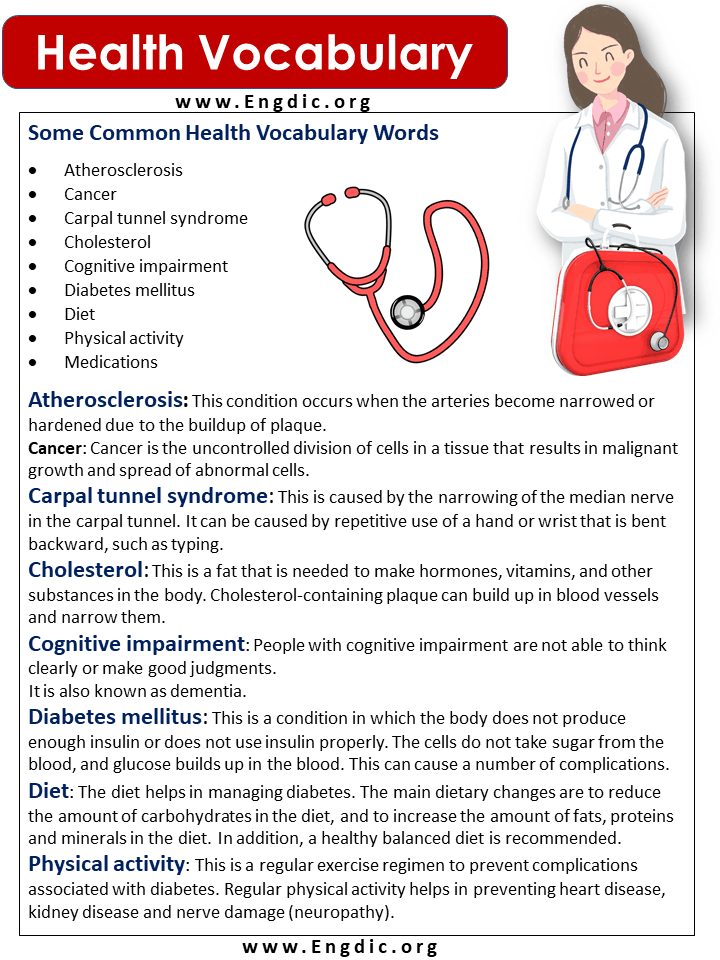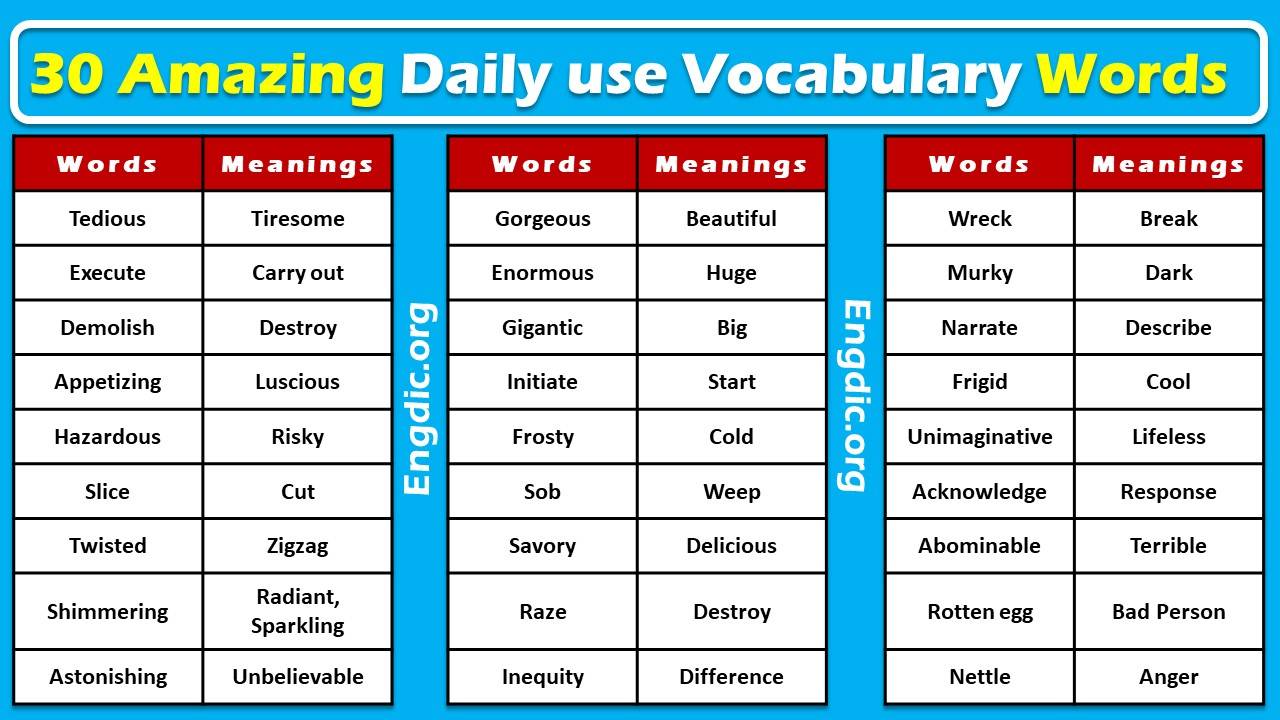Health Vocabulary Words with Meanings

In order to maintain good health, it is important to be aware of the vocabulary words associated with the topic. By understanding the definitions of these words, individuals can make more informed decisions about their health and create a plan for living a healthy life. The following is a list of health-related vocabulary words.
Some Common Health Vocabulary Words
- Atherosclerosis
- Cancer
- Carpal tunnel syndrome
- Cholesterol
- Cognitive impairment
- Diabetes mellitus
- Diet
- Physical activity
- Medications
Atherosclerosis: This condition occurs when the arteries become narrowed or hardened due to the buildup of plaque.
Cancer: Cancer is the uncontrolled division of cells in a tissue that results in malignant growth and spread of abnormal cells.
Carpal tunnel syndrome: This is caused by the narrowing of the median nerve in the carpal tunnel. It can be caused by repetitive use of a hand or wrist that is bent backward, such as typing.
Cholesterol: This is a fat that is needed to make hormones, vitamins, and other substances in the body. Cholesterol-containing plaque can build up in blood vessels and narrow them.
Cognitive impairment: People with cognitive impairment are not able to think clearly or make good judgments.
It is also known as dementia.
Diabetes mellitus: This is a condition in which the body does not produce enough insulin or does not use insulin properly. The cells do not take sugar from the blood, and glucose builds up in the blood. This can cause a number of complications.
Diet: The diet helps in managing diabetes. The main dietary changes are to reduce the amount of carbohydrates in the diet, and to increase the amount of fats, proteins and minerals in the diet. In addition, a healthy balanced diet is recommended.
Physical activity: This is a regular exercise regimen to prevent complications associated with diabetes. Regular physical activity helps in preventing heart disease, kidney disease and nerve damage (neuropathy).
Medications: There are a number of medications available in the market to manage blood sugar levels. Insulin is prescribed when the blood sugar levels are high, and oral medications help in lowering the blood sugar levels.






